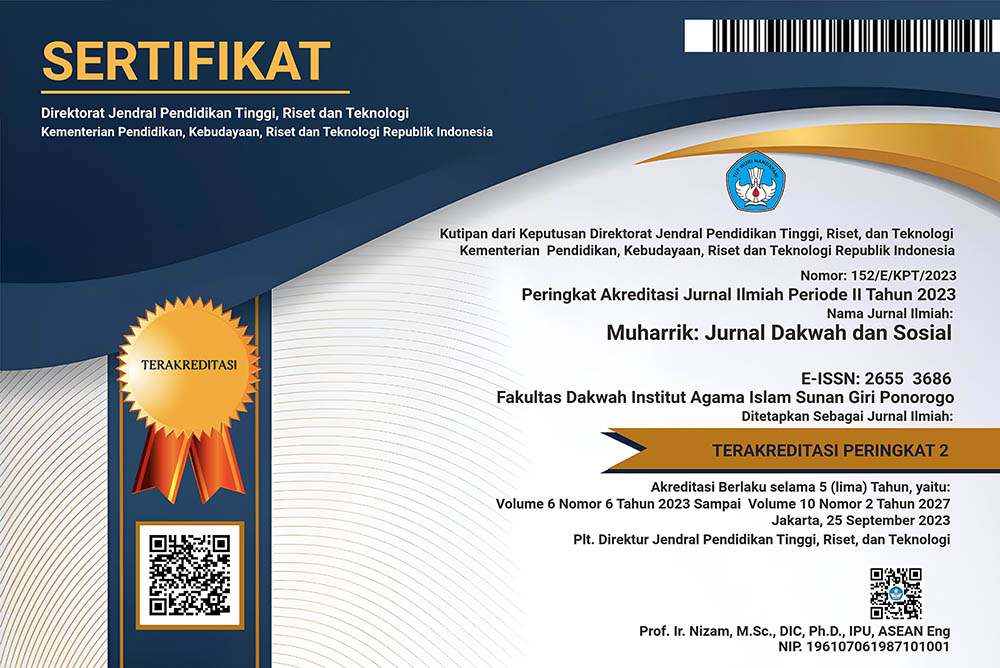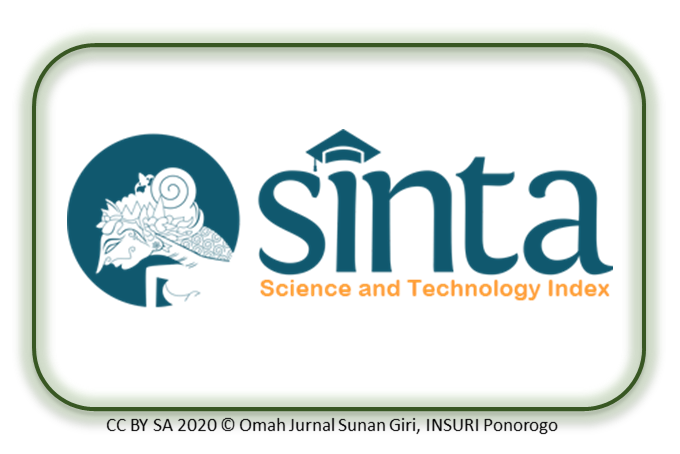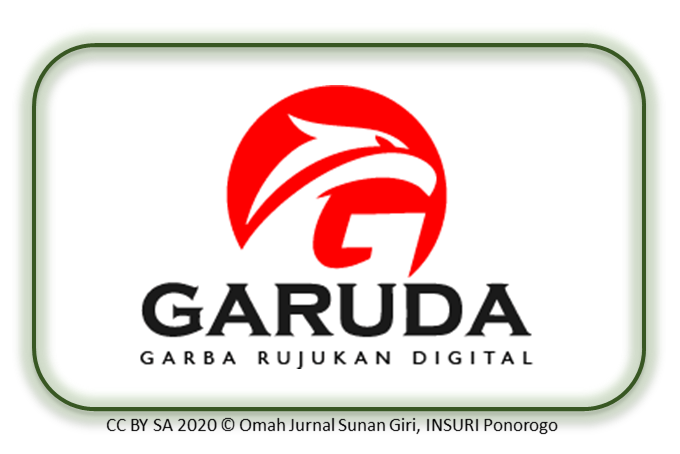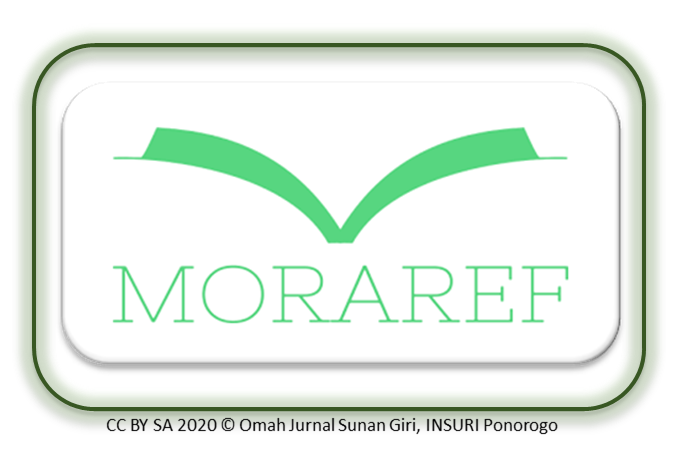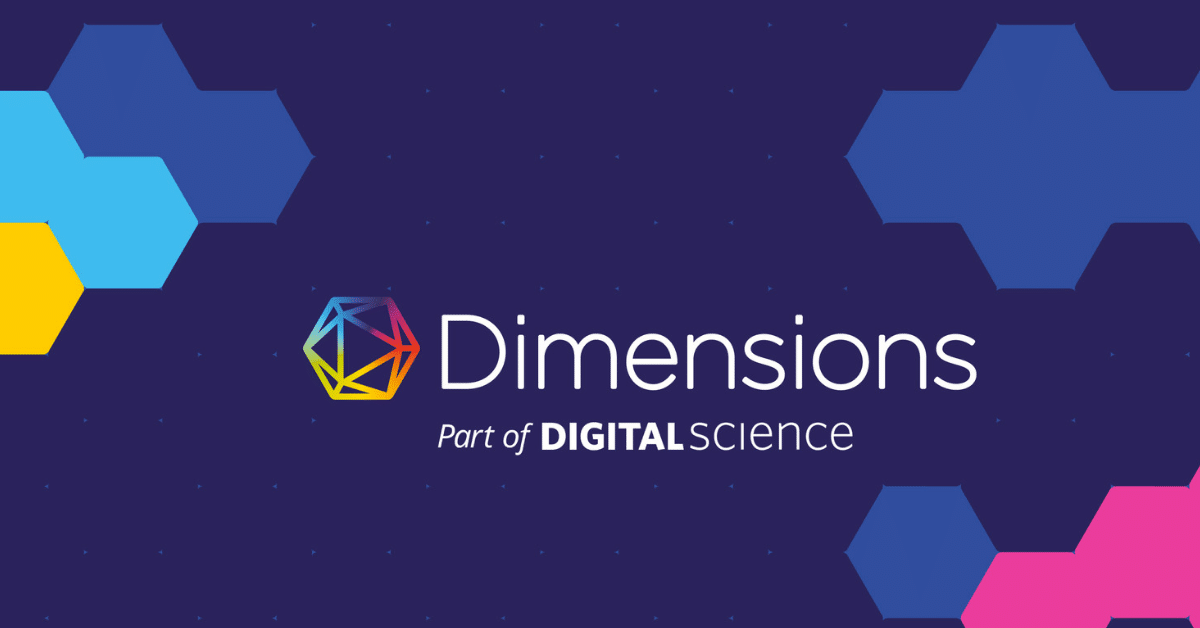Wakafpreneur as an Instrument of Islamic Da'wah and Social Transformation in the Philanthropic Institution
Keywords:
Wakafpreneur, Da'wah, Social Transformation , Philanthropic InstitutionsAbstract
Although waqf has long been recognised as a powerful Islamic socio-economic instrument, its utilisation in many Muslim communities remains largely consumptive and under-optimised. Existing studies tend to focus on traditional or partial models of productive waqf, offering limited insights into how waqf can be integrated with contemporary entrepreneurial practices to generate sustainable socio-economic impact. This study addresses this gap by examining Wakafpreneur, an innovative and integrated model that combines productive waqf with entrepreneurial frameworks to support da'wah initiatives and wider social transformation. Focusing on philanthropic institutions in Riau Province, Indonesia, this research aims to explore how the Wakafpreneur model is conceptualised, implemented, and experienced by its stakeholders. A qualitative case study approach was employed, drawing on in-depth interviews with waqf managers, participating entrepreneurs, and programme beneficiaries, as well as direct observations of Wakafpreneur business units. The findings demonstrate that Wakafpreneur significantly enhances the effectiveness of waqf management by transforming dormant waqf assets into sustainable business entities. This model not only generates independent financing streams for da'wah programmes but also promotes community economic empowerment through job creation, improved welfare outcomes, and the practical dissemination of Islamic values. The novelty of this study lies in its analysis of Wakafpreneur as a holistic and replicable model that positions waqf institutions as transformative agents within modern socio-economic ecosystems. The study recommends replicating the Wakafpreneur model in other regions as a strategic pathway to optimise waqf potential and strengthen the contribution of Islamic philanthropy to socio-economic development.
References
Abdul-Rahman, A. (2020). Islamic lanthropy and social development : The role of waqf institutions . Kuala Lumpur : IIUM Press.
Aziz, M. (2020). The empowerment of waqf in enhancing socio-economic development . Journal of Islamic Economics, 12(2), 145–162. https://doi.org/10.21043/jie.v12i2.7321
Waqf Board . (2023). Report annual village program Waqf . Jakarta: BWI. https://www.bwi.go.id
Chapra , M. U. (2016). The future of economics: An Islamic perspective . Leicester: The Islamic Foundation.
Cizakca , M. (2011). Islamic Capitalism and Finance: Origins, evolution and the future . Cheltenham: Edward Elgar.
Fadli, RM, & Helmi, AM (2024). Perspective Ibn 'Ashur's Maqasid Sharia: Critical and Contextual Study . Al- Bustan: Journal of Islamic and Socio- Religious Studies , 1(1), 98–113. https://doi.org/10.2024/9vrjgv18
Fauzan, H., & Imawan , DH (2023). Thought Maqashid Syariah Al-Tahir Ibn Asyur. Al- Mawarid : Journal of Sharia and Law (JSYH) , 5(1), 101-114. https://doi.org/10.20885/mawarid.vol5.iss1.art7 ( Journal of UII )
Fathurahman , I. (2018). Productivity waqf as instrument welfare social . Al-Awqaf: Journal Waqf and Islamic Economics, 11 (1), 21–38. https://doi.org/10.21580/awqaf.v11i1.2237
Giddens, A. (2013). The consequences of modernity . Cambridge: Polity Press.
Hadi, S. (2023). Problem Solutions Development Cash Waqf in Indonesia. Tawazun : Journal of Islamic Economic Law, 6(1), 51. https://doi.org/10.21043/tawazun.v6i1.14747
Hasan, Z. (2011). A survey on issues and challenges of waqf management in Malaysia. Journal of Contemporary Islamic Studies, 2 (1), 79– https://doi.org/10.2139/ssrn.1815492
Hidayatullah, S. (2020). Value integration preaching in governance waqf productive . Journal Islamic Da'wah and Communication , 14 (2), 115–132. https://doi.org/10.21043/jdki.v14i2.6371
Ibn 'Āshur, MT (2006). Maqā ṣ id al- sharī' ah al- Islāmiyyah . Amman: Dar al- Nafais .
Kahf , M. (2019). Reviving the waqf for socio-economic development . Islamic Economic Studies, 27 (1), 1–20. https://doi.org/10.1108/IES-01-2019-0001
Mahamood, SM (2006). Waqf in Malaysia: Legal and administrative perspectives . Kuala Lumpur: University of Malaya Press.
Maharani, J. (2022). Ibn Assyria's Thoughts about Maqashid Sharia in Contemporary Economics . Journal Islamic Economics , 8(3), 2495-2500. https://doi.org/10.29040/jiei.v8i3.5708 ( Journal of STIE AAS )
Mohsin, M.I.A. (2022). Waqf development and innovation in the contemporary world . Singapore: Springer. https://doi.org/10.1007/978-981-16-5734-2
Qardhawi , Y. (1999). Fiqh al- zakāh : A comparative study of zakat, regulations and philosophy in the light of the Qur'an and Sunnah . Beirut: Muassasah al- Risala.
Saad, N.M., Kassim, SH, & Hamid, Z. (2016). The role of cash waqf in poverty alleviation . Journal of Islamic Finance, 5 (1), 1–12. https://doi.org/10.12816/0027648
Sururi Maudhunati & Muhajirin . (nd). The Concept of Maqashid Syariah According to Muhammad Thahir bin al -' Asyur as well as Implementation in Islamic Economics. Journal of Islamic Economic Law (JHES) . https://doi.org/10.26618/j-hes.v6i02.9315 ( Journal Unismuh )
Sadeq, AM (2018). Waqf, perpetual charity and poverty alleviation. International Journal of Social Economics, 45 (5), 828–845. https://doi.org/10.1108/IJSE-09-2017-0407
Wiroso, W. (2011). Management waqf productive . Jakarta: Rajawali Press.
Zahra, S.A., Gedajlovic , E., Neubaum, D.O., & Shulman, J.M. (2009). A typology of social entrepreneurs: Motives, search processes and ethical challenges . Journal of Business Venturing, 24 (5), 519–532. https://doi.org/10.1016/j.jbusvent.2008.04.007
Downloads
Published
Issue
Section
License
Copyright (c) 2025 Zainur Zainur, Muhammad Yafiz, Yenni Samri Juliati Nasution

This work is licensed under a Creative Commons Attribution-NonCommercial 4.0 International License.
The author(s) retain/s the copyright and grant/s Muharrik: Jurnal Dakwah dan Sosial the first publication rights licensed under the Creative Commons Attribution-NonCommercial 4.0 International (CC BY-NC 4.0) , which allows others to access (search, read, download and quote), share (copy and redistribute the material in any media or format) and adapt (mix, modify and develop) works for legitimate non-commercial purposes, with recognition of the authorship of the work and its initial publication in this journal.

